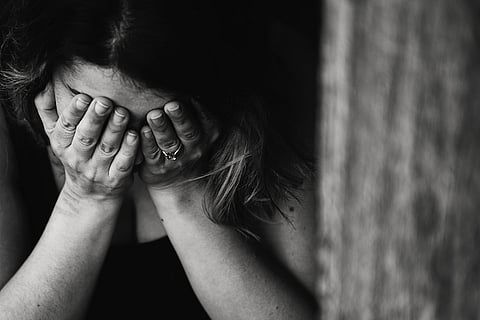

‘Bengaluru man with OCD spent 10 hours bathing daily’ — this news, which was widely reported last week, caught Satish’s (name changed) attention. For the last five to six years, his 51-year-old wife, too, cleaned their house and bathed multiple times in a span of nine hours every day.
A resident of Bengaluru, Satish took his wife to Dr Satish Ramaiah, a consultant psychiatrist and sleep disorder specialist in the city. “She takes a shower from 10.30 am to 7 pm, the time she would spend cleaning the house. After cleaning the house, she would take a shower, then clean the house again, then shower, and it continued. As a result, she ate less, started losing weight, was not getting sufficient sleep and stopped having a social life,” Dr Satish told TNM.
There are many such cases of OCD: An elderly woman from a traditional family sees a sexual image of the deity when she sees the image of a god. A 24-year-old woman in Bengaluru spends hours arranging the files on her laptop and phone, compartmentalising them different folders.
According to mental health experts, most of the human beings have traits of a perfectionist. “That is what makes us keep our houses clean and presentable. That is what makes us functional,” Shamantha K, a counselling psychologist at Fortis Hospitals, Bengaluru, said.
However, when you find yourself spending an excessive amount of time doing these tasks — cleaning houses seven times a day, rearranging shelves or cupboards over and again, checking if the stove has been turned off even after checking it a few minutes ago, washing hands after shaking hands with someone — these could be signs of a disorder, triggered by anxiety. This is Obsessive-Compulsive Disorder (OCD).
What is OCD
Obsessive-Compulsive Disorder is a type of anxiety disorder or a mental health illness where a person has repeated, unwanted thoughts (obsessive thoughts) and/or the urge to do something over and over again (compulsive habits). Some examples include checking light switches, locks or stoves, fear of contracting germs, the compulsion to arrange certain items in an order and counting steps, among others.
Most OCD patients have obsessive thoughts leading to compulsive behaviour. For instance, a person may have constant doubts if he/she has locked the door. That thought is called obsession. If the person goes back and checks, that is compulsion. If the person repeats it multiple times a day, it is called a disorder, Dr Satish explained.
According to mental health experts, if OCD patients do not do anything to stop their obsessive thoughts, their anxiety goes up. They can't concentrate and can get irritated. “To overcome these thoughts, the easiest way out for them is to act on it. It gives them immediate relief, but it does not stop there. A few minutes or seconds later, they are preoccupied with the same thoughts, and the process continues,” he added.
Incidentally, a person with OCD is aware of his/her obsession and compulsive behaviour. “They don't do it voluntarily but are compelled to act to reduce their anxiety. It is beyond their control and they do not enjoy doing it. They can't quit, and that is what makes it a disorder,” explained Shamantha.
Why do people have OCD
Symptoms of OCD are generally detected during the early teen and adulthood. As the person grows up, the anxiety increases with age. According to experts, hereditary or exposure to any specific event or trauma like a Post-Traumatic Stress Disorder (PTSD) causes OCD.
When people act on their obsessions, it takes away a lot of their time and energy, affects their emotional, personal and social life. That is why the people need to look out for these signs and symptoms, said Shamantha.
OCDs can’t be cured, but treated
OCD, like other psychological disorders, cannot be cured, said experts. “Some people pass off such habits as a person’s behaviour, without realising that it is an illness or a condition, which can be treated,” said Dr Satish.
The disorder can be treated with medicines, therapies such as cognitive behaviour therapies, and by addressing underlying psychological issues. OCD patients can also be taught relaxation techniques to control their anxiety.
“The symptoms can be reduced and the person becomes more functional in life. However, a stressful event could trigger symptoms again,” said Dr Shamantha.